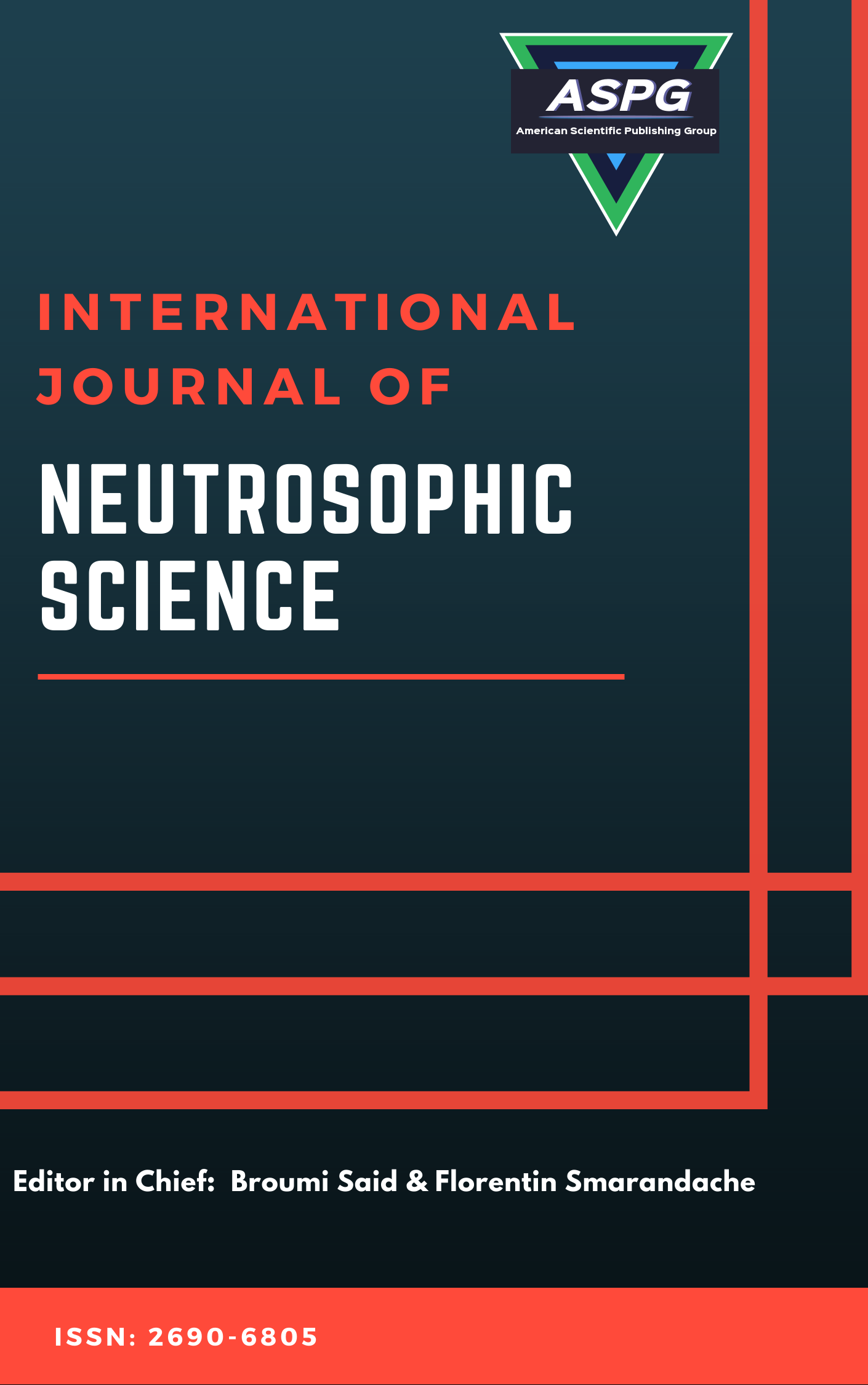

Volume 18 , Issue 4 , PP: 116-124, 2022 | Cite this article as | XML | Html | PDF | Full Length Article
María F. L. Barragán 1 * , Raúl F.G. Montenegro 2 , María De Lourdes L. C. 3
Doi: https://doi.org/10.54216/IJNS.180410
Multicriteria decision problems are present in all branches of life and present a high degree of complexity in determining a feasible solution. In the public health sector, decisions are even more delicate because they work not only with the direct influence of human needs but also with limited financial resources. Saturation in hospital emergency services occurs when the need identified exceeds the resources available for patient care in the emergency unit. One of the elements of primary regulatory effect on saturation levels in emergency services is undoubtedly an adequate triage system. The present study presents the application of multicriteria evaluation techniques as a method for the best selection of different types of triage according to certain pre-established parameters of interest. For them, we rely on a method that combines the TODIM and PROMETHEE methods to obtain the results. In addition, the neutrosophic single value sets based on the neutrosophic logic are used so that the indeterminate and inconsistent information typical of the real world can be adequately handled. The application of the method used demonstrates the efficiency of this kind of method in solving complex problems in real life and in different fields of society, particularly
Triage systems , selection , multicriteria decision method , neutrosophy , TODIM , PROMETHEE
[1] M. Gul and M. Yucesan, “Hospital preparedness assessment against COVID-19 pandemic: a case
study in Turkish tertiary healthcare services,” Math. Probl. Eng., vol. 2021, 2021.
[2] M. Grida, R. Mohamed, and A. H. Zaid, “A novel plithogenic MCDM framework for evaluating the
performance of IoT based supply chain,” Neutrosophic Sets Syst., vol. 33, no. 1, pp. 323–341, 2020.
[3] N. A. Nabeeh, A. Abdel-Monem, and A. Abdelmouty, “A novel methodology for assessment of
hospital service according to BWM, MABAC, PROMETHEE II,” Neutrosophic Sets Syst., vol. 31,
no. 1, pp. 63–79, 2020.
[4] K. I. Mohammed et al., “Novel technique for reorganisation of opinion order to interval levels for
solving several instances representing prioritisation in patients with multiple chronic diseases,”
Comput. Methods Programs Biomed., vol. 185, p. 105151, 2020.
[5] M. Abdel-Basset, M. Mohamed, A. N. Hussien, and A. K. Sangaiah, “A novel group decisionmaking
model based on triangular neutrosophic numbers.,” Soft Comput., vol. 22, no. 20 SRCBaiduScholar
FG-0, pp. 6629–6643, 2018.
[6] H. Wang, F. Smarandache, R. Sunderraman, and Y. Q. Zhang, Interval neutrosophic sets and logic:
theory and applications in computing: Theory and applications in computing, vol. 5. Arizona:
Hexis, 2005.
[7] A. E. Samuel and R. Narmadhagnanam, “Pi-distance of rough Neutrosophic sets for medical
diagnosis,” Neutrosophic Sets Syst., vol. 28, pp. 51–57, 2019.
[8] P. A. M. Silva, A. R. Fernández, and L. A. G. Macías, “Neutrosophic Statistics to Analyze
Prevalence of Dental Fluorosis,” Neutrosophic Sets Syst., vol. 37, pp. 160–168, 2020, [Online].
Available: http://fs.unm.edu/NSS2/index.php/111/article/view/854.
[9] P. LIU and H. LI, “Multiple attribute decision-making method based on some normal neutrosophic
Bonferroni mean operators.,” Neural Comput. Appl., vol. 28, pp. 179–194, 2017.
[10] D. Xu, X. Wei, H. Ding, and H. Bin, “A new method based on PROMETHEE and TODIM for
multi-attribute decision-making with single-valued neutrosophic sets.,” Mathematics, vol. 8, no. 10,
p. 1816, 2020.
[11] R. Sahin and M. Yigider, “A multi-criteria neutrosophic group decision making method based
TOPSIS for supplier selection,” Appl. Math. Inf. Sci., vol. 10, no. 5, pp. 1–10, 2016.
[12] C. E. P. Hernández, E. T. M. Á. E. Toni, V. Shagnay, and S. G. Enríquez, “Priorization of
educational strategies on nutrition and its correlation in anthropometry in children from 2 to 5 years
with neutrosophic topsis,” Neutrosophic Sets Syst., vol. 34, no. 1, pp. 9–15, 2020.
[13] M. Abdel-Basset, M. Mohamed, F. Smarandache, and A. H. P. Neutrosophic, “An Extension of for
Strategic Planning and Decision-Making.,” Symmetry 116, vol. 10, no. 4 SRC-BaiduScholar FG-0,
2018.
[14] J. L. Salmeron and F. Smarandache, “Redesigning Decision Matrix Method with an indeterminacybased
inference process,” Int. J. Appl. Math. Stat., vol. 13, no. M 08, pp. 4–11, 2008.
[15] F. Smarandache, A unifying field in logics: neutrosophic logic. Neutrosophy, neutrosophic set,
neutrosophic probability: neutrsophic logic. Neutrosophy, neutrosophic set, neutrosophic
probability. American Research Press, 2005.
[16] J. Zhu, B. Shuai, G. Li, K.-S. Chin, and R. Wang, “Failure mode and effect analysis using regret
theory and PROMETHEE under linguistic neutrosophic context,” J. Loss Prev. Process Ind., vol.
64, p. 104048, 2020.
[17] P. Biswas, S. Pramanik, and B. C. Giri, “TOPSIS method for multi-attribute group decision-making
under single-valued neutrosophic environment.,” Neural Comput. Appl., vol. 27, no. 3, 2016.
[18] J. L. Salmerona and F. Smarandacheb, Redesigning Decision Matrix Method with an indeterminacybased
inference process, vol. IV. North-European Scientific Publishers, 2010.
[19] J. Zou, Y. Deng, Y. Hu, and G. Lin, “Measure distance between neutrosophic sets: An evidential
approach.,” Infin. Study, 2018.
[20] S. Pramanik, R. Mallick, and A. Dasgupta, “Contributions of selected indian researchers to multi
attribute decision making in neutrosophic environment: an overview.,” Neutrosophic Sets Syst., vol.
20, pp. 109–130, 2018.
[21] P. Ji, H. Zhang, and J. Wang, “A projection-based TODIM method under multi-valued neutrosophic
environments and its application in personnel selection,” Neural Comput. Appl., vol. 29, no. 1, pp.
221–234, 2018.